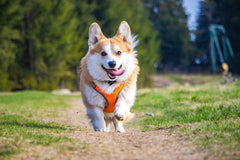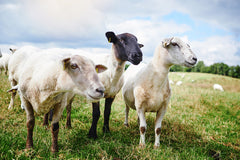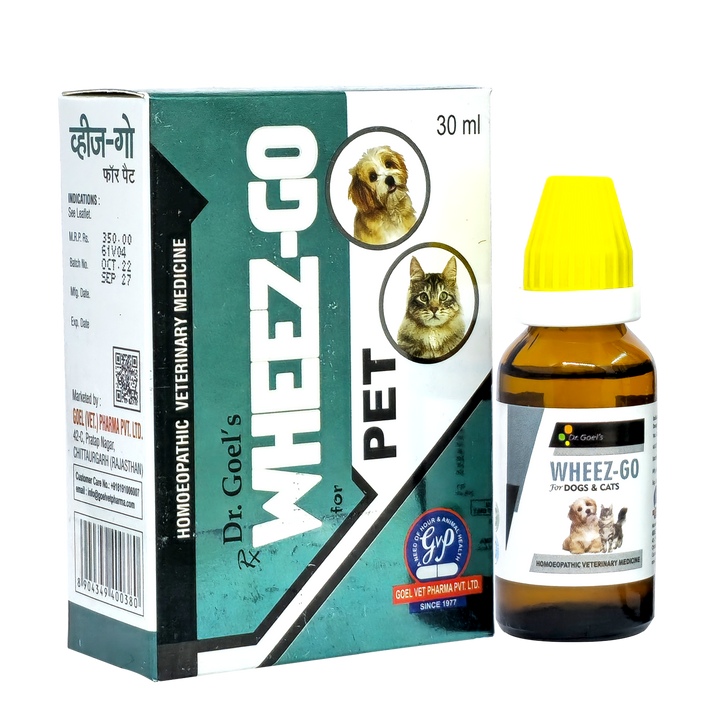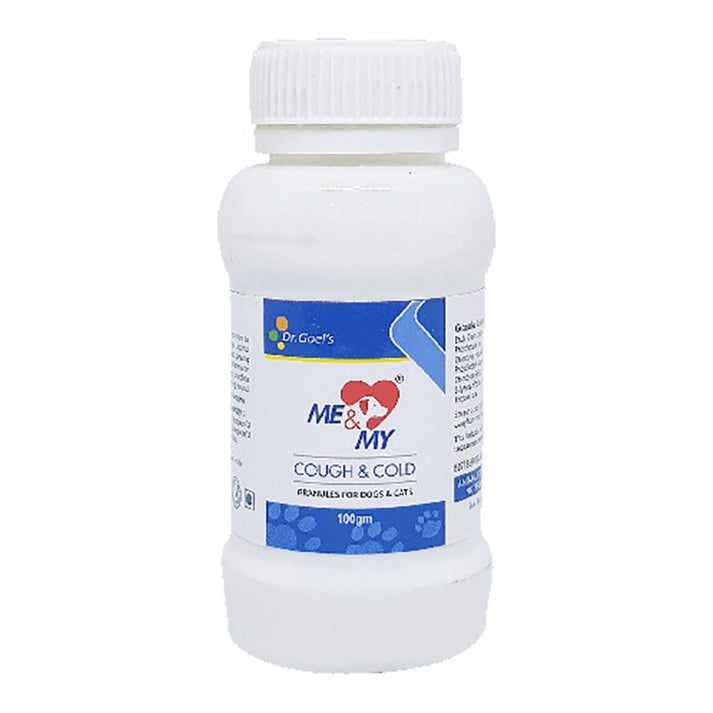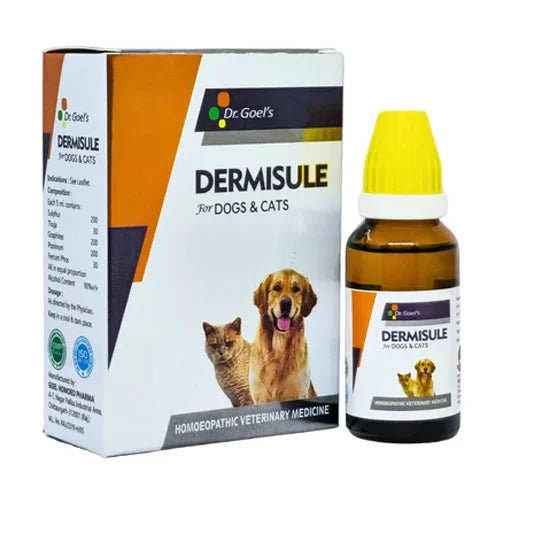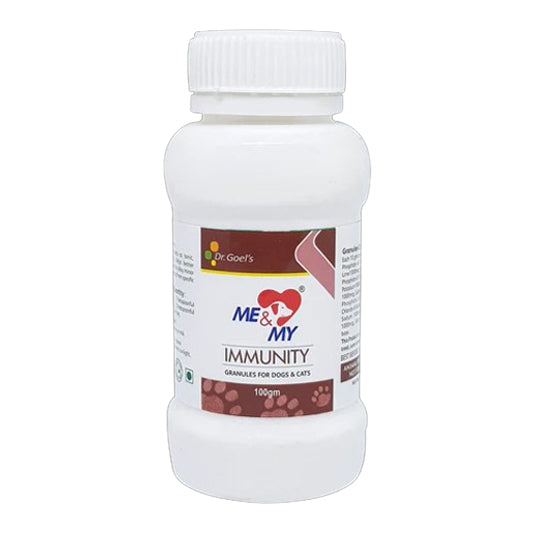
Cold Winds and Canine Coughs: Winter Relief with Dog Cough Medicine | WHEEZ-GO for PET
The onset of cold weather reveals its majesty and grandeur inside the delicate fabric of nature's rhythm, enveloping the earth in a crisp, winter embrace. While we humans dress up for the cold weather, our devoted canine friends face special risks when the seasons change. The frigid weather provides not just beautiful scenery, but also possible difficulties for our dogs, particularly with regard to their respiratory health.
The respiratory system acts as the conductor, arranging the delicate dance of inhalation and exhalation in the grand symphony of life, in which every breath plays a crucial note. Similar to humans, dogs' breathing is not only a mechanical function; it is the sustenance that powers every minute of their existence. When my furry friend developed a persistent cough, I reached for the trusted Dog Cough Medicine recommended by our veterinarian to bring relief.
The coordination of this complex system, which is made up of the airways, lungs, and alveoli, ensures the exchange of oxygen for carbon dioxide—a dance that keeps the beat of life. This complex melody, however, faces dissonance as winter's chill spreads across the landscape, and it is during these chilly months that the nuances of canine respiration are highlighted. In this blog, we'll explore the subtleties of how freezing temperatures might affect our pets' ability to breathe while also uncovering the stories that lie behind every breath they take.
THE RESPIRATORY SYSTEM AT A GLANCE: KNOW WHAT’S RIGHT TO UNDERSTAND WHAT MAY GO WRONG.
Airway Architecture: The respiratory systems of dogs are as complicated as those of humans, yet they have certain special adaptations of their own. Air travels first through the nose, where it is received and filtered by the nasopharynx and oropharynx. The larynx, a structure that houses the vocal cords and serves as a passageway to the trachea, receives this air next.
The Role of Lungs: The vital process of gas exchange is carried out by the lungs, which are the respiratory system's crown jewels. Bronchi within these spongy organs divide into smaller bronchioles, which in turn lead to collections of microscopic air sacs known as alveoli. While carbon dioxide, a by-product of cellular metabolism, is expelled into the environment, oxygen from the inhaled air diffuses into the bloodstream within these alveoli.
Effective Gas Exchange: The alveoli, which represent the beating heart of respiration, are the main location of gas exchange. These tiny air sacs have thin walls that are densely covered in blood vessels, forming a seamless transition between the circulatory and respiratory systems. This complex structure guarantees a constant flow of oxygen to the body's cells and the elimination of carbon dioxide—a necessary equilibrium that sustains life.

WINTERS’ DISRUPTIVE CHALLENGES:
Winter air's quick arrival raises the possibility of respiratory difficulties. A process called as bronchoconstriction occurs when the airways get constricted by cold air. The muscles that surround the air passageways constrict when the temperature decreases, narrowing them. Breathing becomes more difficult as a result of the constriction's introduction of airflow resistance.
Dogs may pant or breathe laboriously because of increased respiratory exertion. The symptoms of bronchoconstriction can be more noticeable in dogs who already have respiratory problems, such as brachycephalic breeds with short noses. Dog cold medicine can be a lifesaver during cold winter months when our canine companions are more susceptible to respiratory issues.
Pre-existing Respiratory Conditions & problems: Some dogs have an additional layer of risk due to underlying respiratory issues. French Bulldogs, Bulldogs, and other brachycephalic breeds all have distinctive facial features that can impair breathing. They are more prone to respiratory discomfort because of their physical peculiarity, particularly during cold weather.
The effects of the cold air on already fragile airways can increase the risk of breathing issues in dogs who are prone to tracheal collapse, where the cartilage rings of the trachea weaken. In such cases, using a pet cough syrup prescribed by the vet can help provide gentle relief while maintaining comfort.
Indoor Air Quality and Irritants: During the winter, the outside may seem to hold the most obvious dangers, but indoor conditions can introduce elements that can interfere with dogs' respiratory balance. The usage of central heating systems and wood-burning stoves indoors produces fine particulate matter into the atmosphere.
The fragile respiratory passages of dogs might become irritated by these particles as well as the dryness of indoor air. The inflammation may cause symptoms like coughing and wheezing, or it may even make asthmatic conditions worse. In order to support dogs' respiratory health during the winter, maintaining excellent indoor air quality becomes essential. Sometimes, a mild cough syrup for dogs can help soothe irritation and ease breathing.

WATCH OUT FOR THESE SIGNS AND SYMPTOMS:
Dogs can communicate incredibly well, especially when it comes to their health. In order to ensure fast medical attention and care, keeping a close eye on your pet's behaviour and physical clues might help discover respiratory problems early. It's essential to follow the prescribed dosage of Dog Cough Medicine to ensure your pet's safety and quick recovery. Observe the following key symptoms and signs:
- Coughing: Dogs may experience a varying degree of continuous coughing. It can make a wet, dry, or honking noise. Coughing is frequently an obvious sign of a respiratory infection or discomfort.
- Laboured Breathing: If your dog is having trouble breathing, breathing quickly, or breathing with obvious effort, it may be having respiratory problems. Breathing that is laboured may indicate different underlying problems.
- Rapid Breathing While at rest: When at repose, dogs typically breathe steadily. Excessive panting in a sedentary dog may be a sign of a problem with the respiratory or circulatory systems.
- Open-Mouth Breathing: Your dog may be having trouble breathing through its nose if it frequently breathes with its mouth open.
- Increased Restlessness: Due to their pain, dogs who are experiencing respiratory distress may become more restless, pace, or have trouble finding a comfortable position.
- Loss of Energy and Appetite: Dogs with respiratory problems may experience exhaustion and a loss of appetite.
- Nasal discharge: Nasal discharge of any colour and frequent sneezing can be signs of an upper respiratory infection or an allergic reaction.
- Fainting or Collapsing: Severe respiratory issues can lead to fainting or collapsing due to lack of oxygen. This is a critical emergency requiring immediate veterinary attention.
For respiratory infections like kennel cough, kennel cough medicine prescribed by your vet can help speed up recovery and reduce symptoms effectively.

Pet owners have a responsibility to make sure that their four-legged friends can breathe comfortably throughout the chilly months in the face of winter's obstacles. Winter's negative effects on a dog's respiratory system can be lessened by the following habits:
- Dogs love to play outside, but it's best to keep them inside during extremely cold weather. Reduced exposure to the cold air lowers the possibility of bronchoconstriction and discomfort brought on by the cold air.
- The importance of creating a cozy indoor environment cannot be overstated. Think about bringing in soft bedding and making sure your indoor heating systems are maintained properly.
- It's important to maintain excellent indoor air quality. Do not subject dogs to irritants such as smoking, powerful odors, and other things that can cause respiratory distress. Air purifier use and routine ventilation can both make a big difference in the quality of indoor air.
- It's critical to keep track of any changes in your dog's breathing patterns. It's important to pay attention to any increased panting, wheezing, or respiratory distress symptoms. Quickly seeking veterinarian advice can help with early intervention and proper management.
- Seek Veterinary help and keep in touch with them to ensure that your pet is in excellent health. Routine blood work/ blood tests and diagnostics can help diagnose any respiratory ailment at its sapling stage and hence, treatment can be initiated accordingly.
- Homoeopathic remedy- Wheez-go for pets, for managing wheezing and associated symptoms.
Even though there are subtle difficulties, the beautiful dance of respiration continues when winter's chill embraces the planet. The beauty is in the understanding that the respiratory health of our beloved friends is deeply linked to their overall well-being. We set out on a path to protect their vigour and quality of life by comprehending the intricacies of canine respiration and proactively tackling the effects of winter. With the right Dog Cough Medicine and some extra TLC, your pup will be back to their happy, playful self in no time. The relationships between humans and dogs transcend the cold in this story about breathing together, reminding us of the enduring warmth that comes from kindness, compassion, and the balance of a life lived to the fullest.
HOMEOPATHIC SOLUTION FOR COUGH & COLD IN PETS
WHEEZ-GO FOR COUGH AND COLD ISSUES
All Pets will naturally cough from time to time. A persistent cough however can be a symptom of a more serious underlying illness or medical condition. Pets are social creatures that naturally sniff and slurp. This is why bacteria and viruses –including a canine form of the flu — quickly spread from dog to dog. Germs also can land on Doors, furniture, food bowls, toys, and other surfaces where the next dog to come along picks them up. The discomfort of the dog and the helplessness of the pet owners can be addressed with WHEEZ-GO for PET, a Homeopathic Veterinary Medicine to treat Cough & Flu-related symptoms for any reason.
ME & MY COUGH & COLD HOMEOPATHIC SUPPLEMENT
Me & My COUGH & COLD Pet Supplement is very useful for pets that show symptoms of catarrhal cough, cold, headache, sneezing with a running nose, inflammation of the mucous membrane, pain in the chest, and bronchitis with or without rattling sound.
DERMISULE For All Kinds of Skin Issues
DERMISULE for pets is the best remedy for dogs suffering from different skin conditions like eczema, allergies, rashes, lesions with hair loss, redness, dry, scaly, pus, or bloody discharge. Specific or general lesions or spots as in Mange disease can also be improved.
ME & MY IMMUNITY, IMMUNITY BOOSTER SUPPLEMENT
Me & My IMMUNITY Pet Supplement is a unique formula of valuable supplements for Dogs & Cats that help in maintaining and raising the IMMUNITY of your lovable pets. It is made for weak and old pets as it improves immunity, helps better utilization of food, and allay minor ailments or complaints of a non-specific nature. It also gives strength to the body's mechanism for fighting against germs of all kinds.
Check out : - INFLASULE for PETS 30ml
Check out : - LIVOMATE for PETS 20ML


